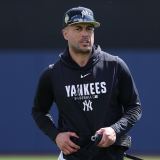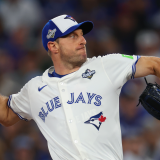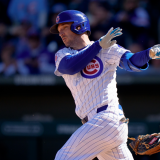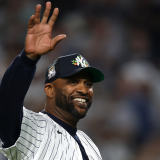Aubrey Huff on DL with anxiety disorder
Giants 1B/outfielder Aubrey Huff has been placed on the disabled list with an anxiety disorder, for which he's undergoing treatment.
By
Dayn Perry
•
1 min read
 Aubrey Huff's somewhat cryptic absence from the Giants now has an explanation: anxiety. Comcast Sports Net's Andrew Baggerly tweets that Huff is now on the 15-day DL with anxiety and that he is undergoing treatment and will meet with the team on Friday.
Aubrey Huff's somewhat cryptic absence from the Giants now has an explanation: anxiety. Comcast Sports Net's Andrew Baggerly tweets that Huff is now on the 15-day DL with anxiety and that he is undergoing treatment and will meet with the team on Friday. The 35-year-old Huff is hitting just .182/.300/.333 on the season. He'll be replaced on the active roster by infielder Joaquin Arias.
Huff, meanwhile, joins a growing number of players to lose time to anxiety-related issues, the most notable being Joey Votto, who lost 21 games back in 2009 to an "affective disorder." While the temptation is to say this is purely modern affliction, the reality is that it's only in recent years that anxiety was both, a, acknowledged by the sufferer and, b, diagnosed by the team.
In the midst of a brave piece in which the San Francisco Chronicle's Henry Shulman discloses his own battle with depression, he provides some necessary background on Huff:
Remember, Huff has gone through a lot in his life, including his father being murdered when Aubrey was 7. Huff’s career has stalled, and he has made many comments (usually in jest) about the end of his baseball days. Saturday’s episode at second base had to be embarrassing. There also must be personal issues that remain undisclosed, too. It’s foolish to try to play psychoanalyst in a blog or a living room and try to pick a cause.As someone who lost a good portion of his 20s to clinical depression and as someone who'll probably be on anti-depressants for the rest of his life, I'm at once concerned for Huff and heartened that he's getting the help he needs, while also serving as a living example that nothing's to be gained by suffering in silence and solitude.
So here's hoping for the best for Huff and Shulman and everyone else burdened by this disease, which, lest we forget, is exactly what it is.

















